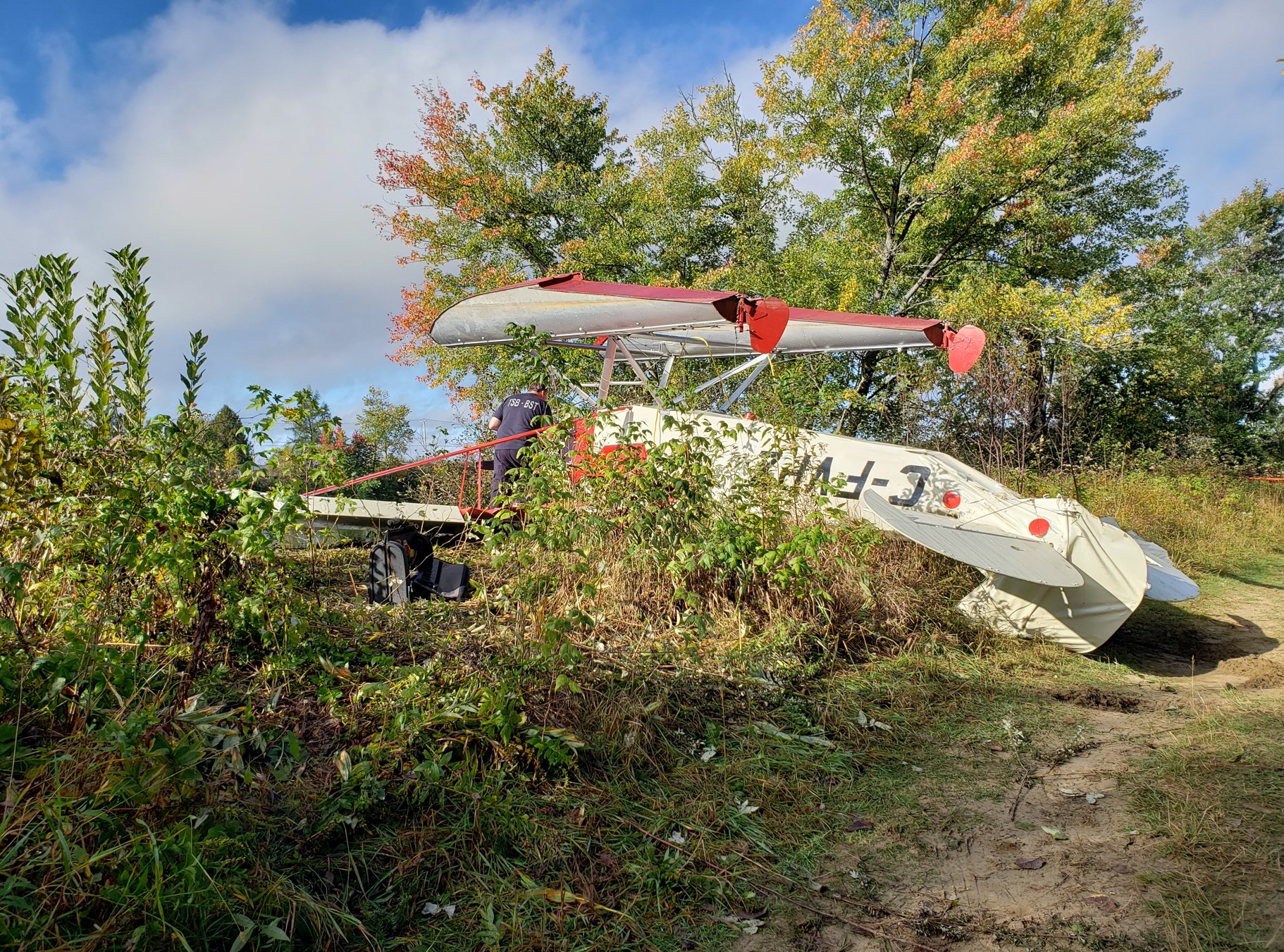Collision with water and capsizing
Privately registered
Piper PA-18S-150 (floatplane), C-FVPZ
Rivière du Lièvre, Ferme-Neuve, Quebec
The occurrence
On at 1530 Eastern Daylight Time, a privately registered, float-equipped Piper PA-18S-150 aircraft took off from Rivière du Lièvre in Ferme-Neuve, Quebec, bound for Parent, Quebec, with a pilot and a passenger on board.
During takeoff, the pilot lost control of the aircraft and it overturned in the river. The aircraft sustained significant damage, and both occupants were fatally injured. The emergency locator transmitter (ELT) did not activate.
Media materials
News release
Investigation report: Collision with water and capsizing
Read the news release
Deployment notice
TSB deployed a team of investigators following an accident involving a small aircraft in Ferme-Neuve (Quebec)
Dorval, Quebec, 25 September 2021 — The Transportation Safety Board has deployed a team of investigators to the site of a fatal accident that occurred yesterday involving a small aircraft in Ferme-Neuve (Quebec). The TSB will gather information and assess the occurrence.
Investigation information
A21Q0090
Collision with water and capsizing
Privately registered
Piper PA-18S-150 (floatplane), C-FVPZ
Rivière du Lièvre, Ferme-Neuve, Quebec
Download high-resolution photos from the TSB Flickr page.
Class of investigation
This is a class 4 investigation. These investigations are limited in scope, and while the final reports may contain limited analysis, they do not contain findings or recommendations. Class 4 investigations are generally completed within 220 days. For more information, see the Policy on Occurrence Classification.
TSB investigation process
There are 3 phases to a TSB investigation
- Field phase: a team of investigators examines the occurrence site and wreckage, interviews witnesses and collects pertinent information.
- Examination and analysis phase: the TSB reviews pertinent records, tests components of the wreckage in the lab, determines the sequence of events and identifies safety deficiencies. When safety deficiencies are suspected or confirmed, the TSB advises the appropriate authority without waiting until publication of the final report.
- Report phase: a confidential draft report is approved by the Board and sent to persons and corporations who are directly concerned by the report. They then have the opportunity to dispute or correct information they believe to be incorrect. The Board considers all representations before approving the final report, which is subsequently released to the public.
For more information, see our Investigation process page.
The TSB is an independent agency that investigates air, marine, pipeline, and rail transportation occurrences. Its sole aim is the advancement of transportation safety. It is not the function of the Board to assign fault or determine civil or criminal liability.
